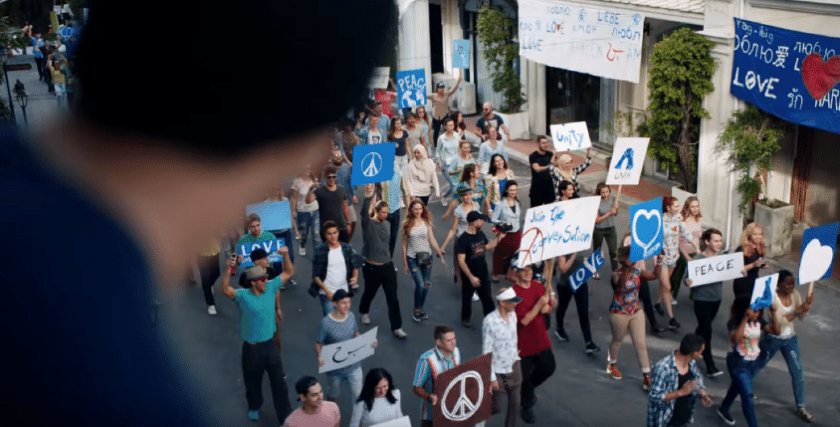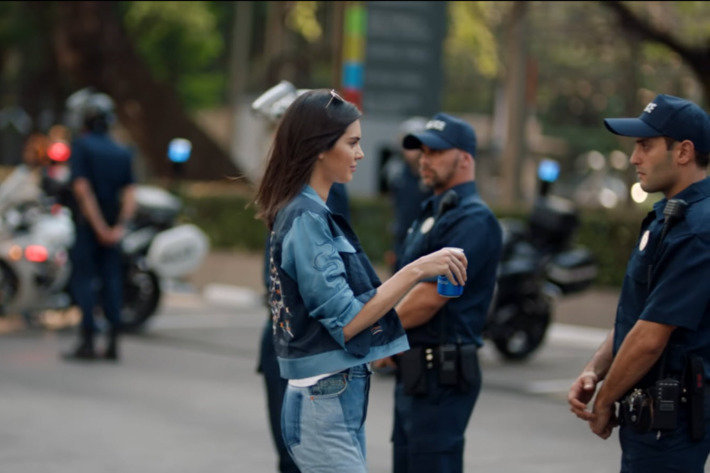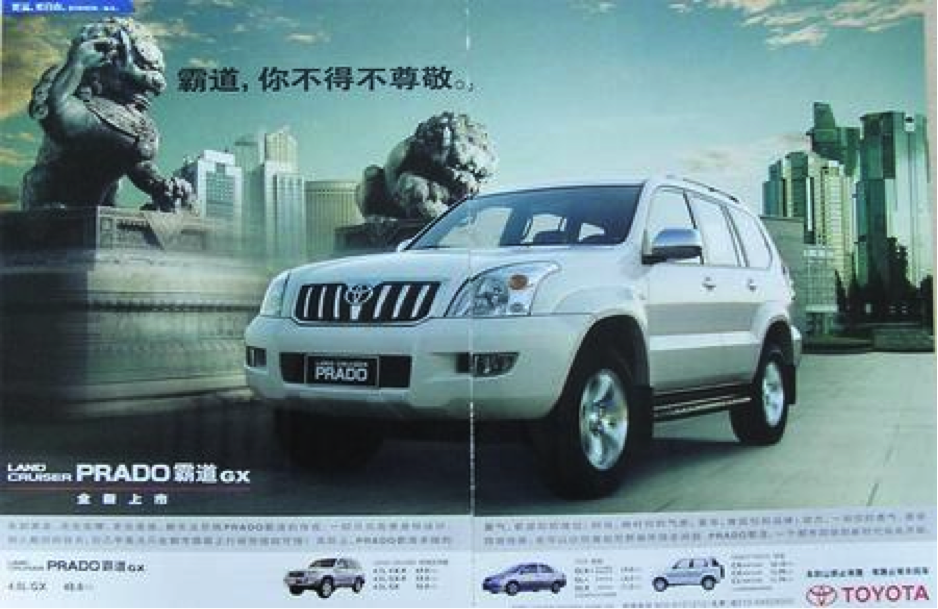On Tuesday a Pepsi ad starring Kendall Jenner sparked a popular backlash on social media. The important lesson we can learn from the Pepsi ad is that it’s extremely easy to get culture wrong.
Initially the company defended its ad saying, “This is a global ad that reflects people from different walks of life coming together in a spirit of harmony, and we think that’s an important message to convey.”
But the backlash was so abrupt and fierce that Pepsi withdrew the ad a day after releasing it. It issued an apology, saying, “Clearly we missed the mark, and we apologize.”

Crowd of protesters in Pepsi ad
What’s wrong with the Pepsi ad starring Kendall Jenner?
The ad showed Jenner in the middle of a photo shoot being beckoned to join a diverse crowd of protesters carrying signs with peace symbols, the phrase “Join the conversation,” and the the word “love” in various languages. At the conclusion of the ad she gives a Pepsi to a stern police officer, who drinks it and breaks into a smile. Suddenly the crowd of protesters erupts in celebration.
Of course it’s easy to see where Pepsi advertisers got the idea for the ad. The images of protest have become ubiquitous on the streets and in the news since Black Lives Matter and the anti-Trump movements gained traction. Surely the Pepsi advertising executives just wanted to tap into the zeitgeist. They wanted young people of our day to see themselves in the characters of the ad and identify with them. Pepsi just wanted to be relevant.

Pepsi ad starring Kendall Jenner
In fact, this ad made all of their serious issues seem as frivolous and frothy as America’s favorite (or second favorite) sugar water. These viewers felt that the company had used them and made light of their struggles — all to enrich comfortable executives.
Media response to the ad
Headlines began appearing almost immediately which called the ad tone-deaf, problematic, and absurd. On Wednesday the most shared article on the topic, with almost 20,000 shares, according to BuzzSumo, was a Huffington Post story titled, “Kendall Jenner Appropriates The Resistance To Sell You Pepsi.”
Critics also tweeted their criticism of the ad:
One Twitter user pointed out that a famous white model would be treated much differently by the police than a non-famous minority.
pepsi you need this disclaimer pic.twitter.com/x8XmT59Vpf
— Matt (@sequentialmatt) April 4, 2017
Another user demonstrated that a wealthy corporation had no business using the image of a powerless protester.
Kendall Jenner: Can I copy off of you?
Iesha Evans: No.
Kendall:* Looks over shoulder anyway*
Damn that. I'm getting this Pepsi money. pic.twitter.com/NUXwCZnM7p— Patti and Moloch's Sweet Potato Pie (@GuruBluXVIII) April 4, 2017
Yet another user made light of just how ridiculous the ad idea had been to start with.
Pepsi CEO: WE NEED A NEW COMMERCIAL! IDEAS!
Intern: Police brutality!
CEO: go on…
Intern: KENDALL JENNER!
CEO: Rick, you're a genius… pic.twitter.com/mmPVKrZghG— X (@XLNB) April 5, 2017
Even Martin Luther King’s daughter responded to the ad.
If only Daddy would have known about the power of #Pepsi. pic.twitter.com/FA6JPrY72V
— Be A King (@BerniceKing) April 5, 2017
But as we said above, the Pepsi ad starring Kendall Jenner may not have sounded like such a terrible idea initially in the board room. It fit in with current events. How could Pepsi executives know beforehand that this would offend?
How can companies avoid offending their international customers?
But those of us in international business face an even bigger question. How can we know beforehand whether we will offend our foreign users? Our own culture is so vastly different from the cultures of our target audiences; how can we understand them?
Examples of embarrassing faux pas abound in the history of international business. In fact, Pepsi had its own embarrassing gaffe in China. One of its taglines was, “Come alive with Pepsi!” However, the translation for the line meant something like, “Pepsi brings back your ancestors from the dead!”
Governments are not immune from cultural missteps either. When Hillary Clinton wanted to say to the Russian Foreign Minister Sergei Lavrov that Obama wanted to reset their relationship, she offered him a big red button. On the button was the Russian word “перегрузка” which Clinton thought meant “reset.” But it actually meant “overcharged.”
But these two examples are simply humorous translation errors. What’s more serious is when the company seems to trample on the values of the foreign culture. Two automakers in China learned the hard way to be sensitive to Chinese values.
Japanese automaker Toyota produced an advertisement that featured traditional Chinese stone lions bowing down to one of their cars. It angered Chinese consumers since it seemed to show Chinese culture paying obeisance to the Japanese.

Toyota’s ad angered Chinese consumers.
But how can companies doing business abroad avoid making terrible cultural or linguistic errors and destroying their credibility?
The answer
The answer for them is the same as the answer for Pepsi.
If Pepsi wanted to reach the protest culture with their product, they should have tested the ad with that culture’s members first. Only by vetting and testing can they know whether their advertisement is appropriate or not.
The same goes for companies in foreign lands. Find members of that culture to help define strategy. And incessantly test marketing ideas with local consumers to see whether they are appropriate.
 Finding local personnel to do translation and testing can be expensive. However, it is also indispensable. Any comfortable executives that export their ideas to the wider world without testing them first, risk experiencing another crisis like the one Pepsi is having this week.
Finding local personnel to do translation and testing can be expensive. However, it is also indispensable. Any comfortable executives that export their ideas to the wider world without testing them first, risk experiencing another crisis like the one Pepsi is having this week.
Test your ideas first. It doesn’t matter whether your audience lives in Moscow, Lisbon, Beijing, Johannesburg, or Chicago.



